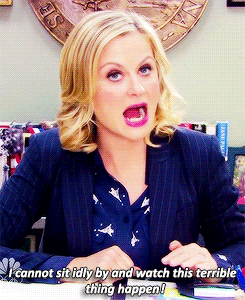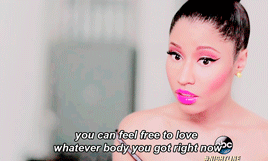- “Why Aren’t You A Feminist?” …
- “What Does ‘Feminism’ Mean To You?” …
- “Do You Think That Both Genders Are Entitled To The Same Social, Economic And Political Rights?” …
- “Do You Have Another Belief System That Promotes Equality?”
Top 20 Celebs Who Shut Down Sexist Interview Questions
Interviews for Top Jobs at Feminist Majority Foundation
Internship Interview
I interviewed at Feminist Majority Foundation
Interview
Sent in application which included cover letter and resume. I was emailed within decent time and a phone interview was scheduled. Phone interview went okay. Basic questions were asked including why I wanted to intern there and what areas of their work I was interested in.
- Why do you want to intern here?What does feminism mean to you?
Fmf Interview
I applied online. I interviewed at Feminist Majority Foundation in May 2018
Interview
The interview process was over the phone and lasted 30 minutes. They asked standard questions as to why you wanted to work for FMF and question related to the experience stated on your resume.
- Are you a feminist?
Campus Organizer Interview
I applied through an employee referral. I interviewed at Feminist Majority Foundation (Los Angeles, CA) in May 2011
Interview
I was hired for this position after completing an internship with the organization. I was recommended for the internship by a friend. I submitted my application online and had a brief phone interview
- They asked to describe experience with organizing
Why are feminists so angry?
Clementine Ford, Author of Fight Like A Girl, Daily Life columnist:
The trope of the angry feminist has proved a useful bogey monster for those invested in keeping women in a state of inequality. Women’s anger is pathologised as hysterical, irrational, illogical — we’re supposed to be Cool Girls, laughing along at our inherent weakness and maintaining the bonds of male power. But anger is not only a strength in women, it’s also a legitimate response to the oppression we’ve been subjected to for millennia.
 If women are angry, it’s because we have good reason to be — we’re subjected to significant levels of violence – sexual, family, maternal, reproductive – and workplace and labour inequalities. The real mystery is how we’ve managed to stop ourselves being consumed by this justifiable rage and instead have found ways to temper it — with love, kindness, and the continued embrace of men who may not be perpetrating this violence against us, but are certainly beneficiaries of the inequality it maintains. I always say that women have every reason to be angry. If you’re not angry, you’re not paying attention.
If women are angry, it’s because we have good reason to be — we’re subjected to significant levels of violence – sexual, family, maternal, reproductive – and workplace and labour inequalities. The real mystery is how we’ve managed to stop ourselves being consumed by this justifiable rage and instead have found ways to temper it — with love, kindness, and the continued embrace of men who may not be perpetrating this violence against us, but are certainly beneficiaries of the inequality it maintains. I always say that women have every reason to be angry. If you’re not angry, you’re not paying attention.
Natalie Kon-Yu, Creative writer, editor and academic:
The idea of the man-hating feminist is one of the most dangerous myths about feminism. What feminists actually hate are the systems of oppression which allow inequality to flourish. In fact, men are arguably oppressed by these same systems, too.
The idea that men are strong and women are weak, for example, allows no wriggle room for either gender. It’s a rigid box that traps both and doesn’t allow for factors such as race, class, sexuality, sexual identity and levels of ability. It’s also a profoundly stupid thing to say, as though humans are fixed into one category and women and men must always be oppositional. We’re so much more complex than that.
Why do feminists not shave?
Natalie Reilly, Daily Life Columnist and Beauty Editor:
The simplest answer as to why feminists might not shave under their arms or legs (or bikini lines or face) is because men don’t have to. Nobody recoils if they see a man with hairy legs. And if men don’t have to, why should we? Social conditioning — via advertising — has led us to believe we’ll feel better with hairless skin. (Words like ‘silky’ and ‘soft’ are used ad nauseum) But it’s also an accepted fact that, especially in the cooler months, hair removal is not a woman’s highest priority.
 And yet, I still choose to remove hair from my body. My rationale is that the feminism I subscribe to is not a fundamentalist one. In other words, I don’t believe hairless legs make me less of a feminist. I see it as a minor issue in a world where women are still struggling to obtain basic healthcare, education and freedom from violence, rape and even death.
And yet, I still choose to remove hair from my body. My rationale is that the feminism I subscribe to is not a fundamentalist one. In other words, I don’t believe hairless legs make me less of a feminist. I see it as a minor issue in a world where women are still struggling to obtain basic healthcare, education and freedom from violence, rape and even death.
I believe in equality, and as more men come under societal pressure to remove hair from their chests, their backs and even their bikini lines, I feel like hey, it’s almost within our grasp, so why stop now?
It’s easy to be theoretical when we talk about the struggle for justice. While it’s great to use our brains and hearts sometimes, we must use our hands as well. Not every act of rebellion needs to be a huge march or protest. Not everyone can call or march, not everyone can strike or boycott, not everyone is safe enough to speak up; however, everyone can take some action.
Speaking of intersectionality, as trans issues have come into the media spotlight over the past few years, it’s essential we think about how we can improve our inclusion of trans women in feminism. When we consider the wage gap, are we talking about anyone besides white cisgender (i.e. non-transgender) women? When we fight for health care, are we accounting for the needs of trans women within that system? When we talk about reproductive justice, do we conflate being a woman with having a uterus? Do our women’s events have space for trans women to feel comfortable using the restroom? Jewish women’s spaces often center on bat mitzvah or Rosh Chodesh; can we expand these rituals and events to meaningfully include trans women?
So why is this important in relation to feminism? Because if our concept of equality doesn’t include the liberation of women of color, queer women, disabled women, then what are we fighting for? If we don’t name these identities explicitly in our struggle, we leave out the essential experience and strength they bring.
The term “intersectional,” coined by scholar and activist Kimberlé Crenshaw, is the idea that multiple identities intersect to create a whole; in order to fully understand someone’s identity, we must think of each separate identity as linked to all the others. As an example, a white Jewish woman is all three parts of her identity; she cannot simply separate her race, religion and gender when these identities intersect and interplay with one another constantly.
FAQ
What are good questions about feminism?
- Do you call yourself a feminist? …
- What is a feminist? …
- Adichie says her brother is her favorite feminist. …
- Does the culture you grew up in have different expectations for boys and girls? …
- There are many negative views of feminism.
What are some of the basic research questions of feminist theory?
What are the main feminist issues?
What are the four major trends in feminism?
